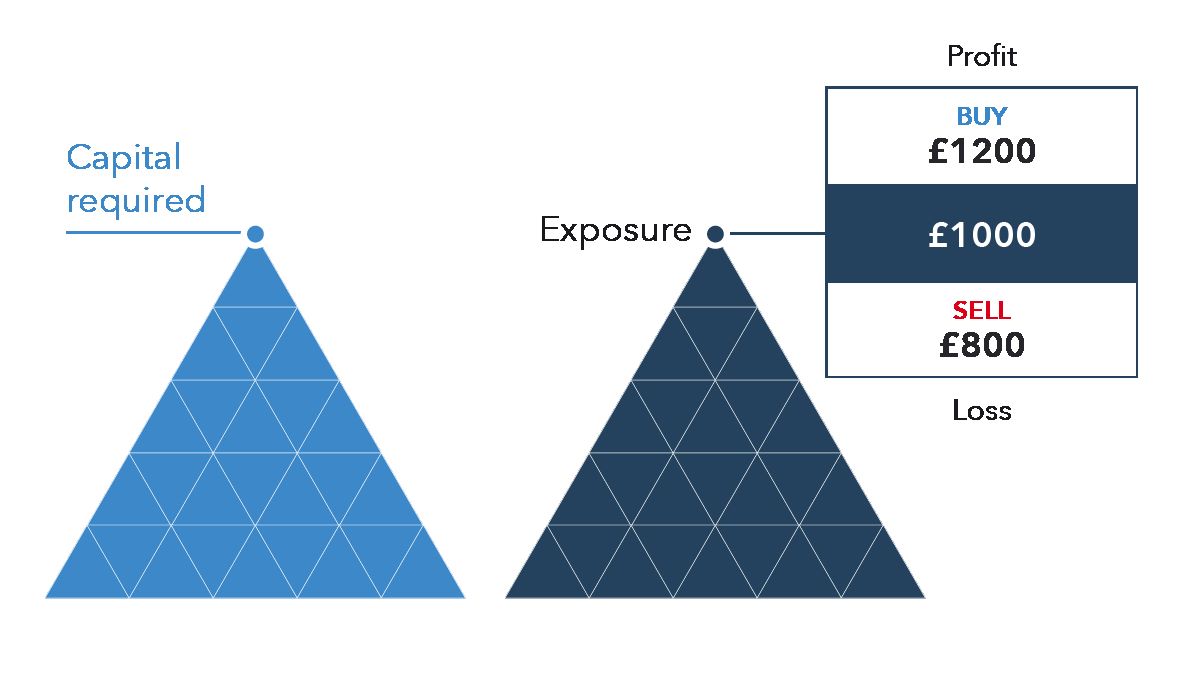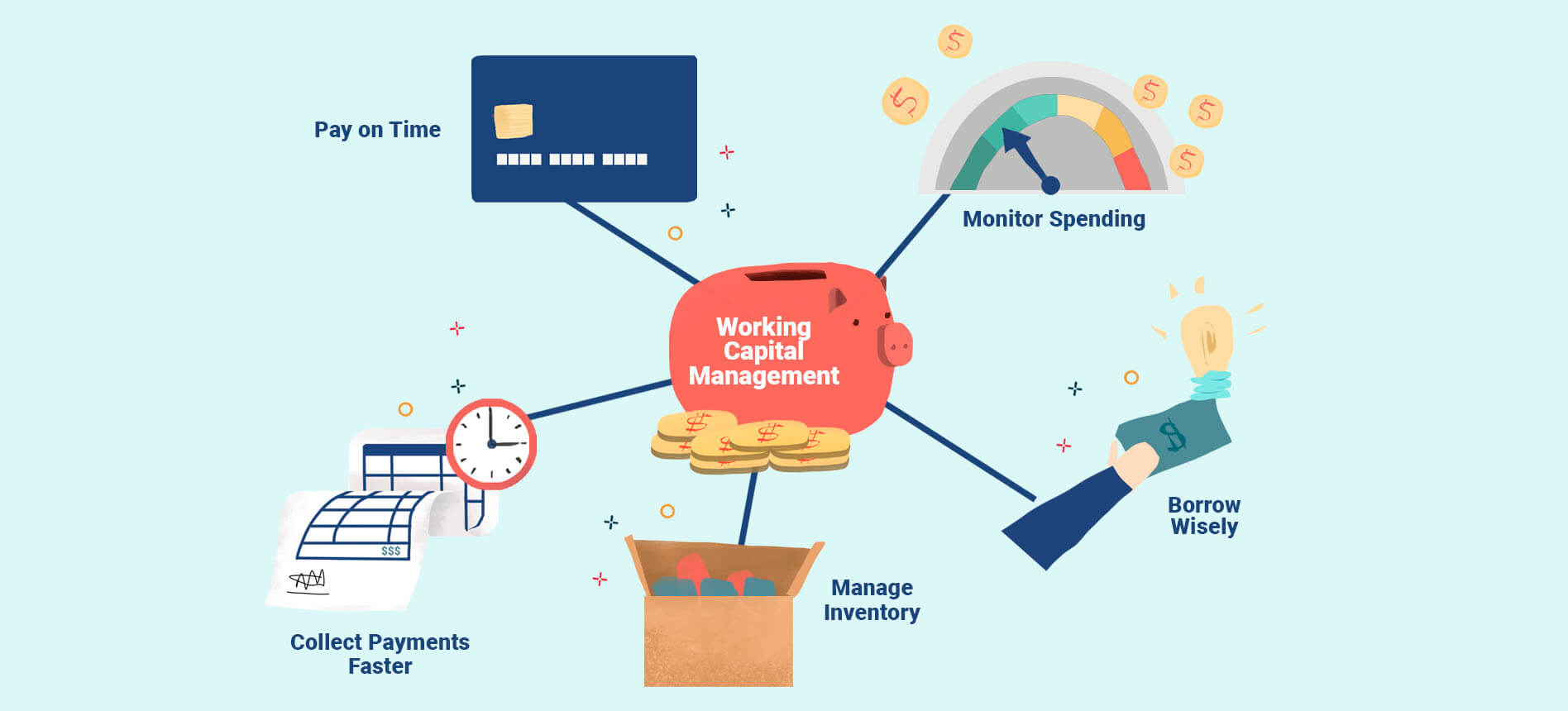

Finance
How To Leverage Your Home Equity
Published: January 15, 2024
Learn how to use your home equity to your advantage and improve your financial situation. Discover the benefits of leveraging your home equity for greater financial security and flexibility.
(Many of the links in this article redirect to a specific reviewed product. Your purchase of these products through affiliate links helps to generate commission for LiveWell, at no extra cost. Learn more)
Table of Contents
- Introduction
- Understanding Home Equity
- Benefits of Leveraging Home Equity
- How to Calculate Your Home Equity
- Ways to Leverage Your Home Equity
- Home Equity Loan vs. Home Equity Line of Credit
- Pros and Cons of Leveraging Home Equity
- Tips for Successfully Leveraging Home Equity
- Risks to Consider When Leveraging Home Equity
- Conclusion
Introduction
For many homeowners, their house is not just a place to live, but also a valuable asset that can serve as a financial resource. One of the ways to unlock the potential of this asset is by leveraging home equity. Home equity refers to the portion of your home’s value that you truly own, calculated by subtracting the outstanding balance of your mortgage from the current market value of your property.
Leveraging your home equity is a strategic move that allows you to access funds for various purposes, such as home improvements, debt consolidation, college tuition, or even starting a new business venture. This financial tool offers flexibility and can provide you with a significant amount of money that you can use to achieve your goals.
However, before you decide to leverage your home equity, it’s important to have a clear understanding of the process, the benefits, and the potential risks involved. This comprehensive guide aims to provide you with the necessary knowledge to make informed decisions about whether and how to leverage your home equity.
Throughout this article, we will explore the different ways to calculate and leverage your home equity, examine the pros and cons of doing so, and provide you with tips on how to maximize the benefits while minimizing the risks. By the end, you will be equipped with the knowledge to make an informed decision about leveraging your home equity.
Now that we have set the stage, let’s delve deeper into understanding home equity and how to put it to work for you.
Understanding Home Equity
Before diving into the various ways to leverage your home equity, it’s crucial to have a solid understanding of what home equity is and how it is calculated. Essentially, home equity represents the portion of your property’s value that you truly own, free from any outstanding mortgage balance.
Home equity is built over time as you make mortgage payments and the value of your property appreciates. It serves as a valuable asset that can be used as collateral for loans, providing you with access to funds that can be used for a variety of purposes.
Calculating your home equity requires a simple calculation. Start by determining the market value of your property, which can be done through a professional appraisal or by comparing similar homes in your area that have recently sold. Next, subtract the outstanding balance of your mortgage from the market value of your property. The resulting figure is your home equity.
For example, let’s say your home is appraised at $400,000 and you still owe $250,000 on your mortgage. Your home equity would be $150,000 ($400,000 – $250,000).
It’s worth noting that home equity is not a fixed amount. It can change over time due to a variety of factors, such as changes in the real estate market, making additional mortgage payments, or making home improvements that increase the value of your property.
Home equity is an important asset that can provide you with financial opportunities and stability. By understanding how home equity is calculated and its significance, you can make informed decisions on how to leverage it to your advantage. Now that we have covered the basics of home equity, let’s explore the benefits of leveraging it.
Benefits of Leveraging Home Equity
Leveraging your home equity can offer a range of benefits that can positively impact your financial situation and overall well-being. Here are some key advantages to consider:
Access to Funds: One of the primary benefits of leveraging home equity is that it allows you to access a significant amount of funds. Whether you need money for a major home renovation, to pay for your child’s education, or to consolidate high-interest debts, tapping into your home equity can provide you with the necessary funds to achieve your goals without having to rely on other types of loans.
Lower Interest Rates: When compared to other forms of borrowing, such as credit cards or personal loans, home equity loans generally offer lower interest rates. This can result in substantial savings over time, especially if you are consolidating high-interest debts into a single loan with a lower interest rate.
Tax Benefits: In some cases, the interest paid on a home equity loan or line of credit may be tax-deductible. It’s essential to consult with a tax professional to understand the specific tax benefits available to you based on your individual circumstances.
Home Value Appreciation: Leveraging your home equity can also be an excellent opportunity to invest in improvements that can potentially increase the value of your property. By upgrading your home, you not only enhance your living experience but also have the potential to increase the resale value of your property, allowing you to build further equity over time.
Flexibility: Leveraging home equity gives you the flexibility to use the funds in a way that aligns with your financial goals. Unlike other loans that may have restrictions on how the funds can be used, a home equity loan or line of credit provides you with the freedom to utilize the money as you see fit.
It’s important to note that while leveraging your home equity can offer numerous benefits, it is essential to approach it with caution and responsible financial planning. Carefully consider your long-term goals, the potential risks involved, and consult with professionals, such as a mortgage advisor or financial planner, to ensure that leveraging your home equity is the right choice for your specific situation.
Now that we have explored the benefits of leveraging home equity, let’s move on to the next section, where we will discuss how to calculate your home equity.
How to Calculate Your Home Equity
Calculating your home equity is a straightforward process that involves determining the market value of your property and subtracting the outstanding balance on your mortgage. Here’s a step-by-step guide to help you calculate your home equity:
- Find the current market value of your property: The first step is to determine the current market value of your home. You can do this by obtaining a professional appraisal or by researching recent sales of comparable homes in your area.
- Calculate the outstanding balance on your mortgage: Review your most recent mortgage statement or contact your lender to obtain the exact amount of the outstanding balance on your mortgage. This is the amount you still owe on your home loan.
- Subtract the outstanding mortgage balance from the market value: Once you have the market value of your property and the outstanding balance of your mortgage, subtract the mortgage balance from the market value. The result is your home equity.
For example, let’s say your home is appraised at $500,000 and you owe $300,000 on your mortgage. Your home equity would be $200,000 ($500,000 – $300,000).
It’s important to keep in mind that the calculation above provides you with an estimate of your home equity. The market value of your property can fluctuate over time, and other factors may influence your home equity, such as improvements or renovations you have made to your home.
Now that you know how to calculate your home equity, you can have a clearer understanding of your current financial position and the potential resources available to you. In the next section, we will explore the different ways you can leverage your home equity.
Ways to Leverage Your Home Equity
Once you have calculated your home equity, you may be wondering how to put it to use. There are several ways to leverage your home equity to your advantage. Here are some common options:
- Home Equity Loan: A home equity loan, also known as a second mortgage, allows you to borrow a lump sum of money using your home equity as collateral. This type of loan typically has a fixed interest rate and a set repayment term. It is ideal for one-time expenses, such as a major home renovation, paying for a child’s education, or consolidating high-interest debts into a more manageable loan.
- Home Equity Line of Credit (HELOC): A HELOC is a revolving line of credit that allows you to borrow against your home equity as needed, similar to a credit card. With a HELOC, you have a set credit limit and can access funds whenever you need them. The interest rates on a HELOC are typically variable, and you only pay interest on the amount borrowed. This option provides flexibility and is suitable for ongoing expenses or projects with varying costs.
- Cash-Out Refinance: With a cash-out refinance, you replace your existing mortgage with a new one that has a higher loan amount. The difference between the new loan amount and your current mortgage balance is given to you as cash, which you can use for various purposes. This option allows you to take advantage of potentially lower interest rates while accessing a larger sum of money.
- Home Equity Sharing: Another option is to consider home equity sharing, where you partner with a third party that invests in your property in exchange for a share of your home equity. This can be a good option if you need funds but prefer not to take on additional debt. However, it’s important to carefully consider the terms and risks associated with this type of arrangement.
When deciding how to leverage your home equity, it’s crucial to consider your goals, financial situation, and preferences. Each option has its advantages and considerations, so it’s important to weigh the pros and cons in order to make an informed decision.
Additionally, it is always recommended to consult with a mortgage advisor or financial professional who can provide guidance tailored to your specific circumstances. They can help you navigate the various options and find the best solution for your needs.
Now that you have an understanding of the different ways to leverage your home equity, let’s move on to comparing home equity loans with a home equity line of credit.
Home Equity Loan vs. Home Equity Line of Credit
When leveraging your home equity, two common options to consider are a home equity loan and a home equity line of credit (HELOC). While both options allow you to access funds based on your home equity, there are some key differences to be aware of:
Home Equity Loan: A home equity loan is a lump-sum loan that is borrowed against the equity in your home. The loan amount is typically fixed, and you receive the funds upfront. The interest rate is also usually fixed, providing stability in monthly payments. This makes it easier to budget for the loan repayment. Home equity loans are great for one-time expenses, such as major home renovations or paying off high-interest debts.
Home Equity Line of Credit (HELOC): A HELOC, on the other hand, is a revolving line of credit that allows you to borrow against your home equity as needed, similar to a credit card. Instead of receiving a lump sum, you are given a credit limit. You can withdraw funds from the line of credit whenever you need them, and you only pay interest on the amount borrowed. HELOCs typically have variable interest rates, which means your monthly payments can fluctuate. HELOCs provide flexibility for ongoing expenses or projects with varying costs.
When deciding between a home equity loan and a HELOC, it’s important to consider your specific financial goals and preferences:
- Loan Amount: If you have a specific expense in mind and know the exact amount you need, a home equity loan may be the better choice. You will receive the full loan amount upfront and can budget accordingly.
- Flexibility: If you have ongoing expenses or anticipate needing funds periodically, a HELOC may be more suitable. With a line of credit, you have the flexibility to borrow as needed and only pay interest on the amount you withdraw.
- Interest Rates: Home equity loans often have fixed interest rates, which can provide stability and predictability in your monthly payments. HELOCs, on the other hand, typically have variable interest rates that can fluctuate over time. Consider your comfort level with potential interest rate changes when making your decision.
- Repayment Terms: Both home equity loans and HELOCs have repayment terms, but they may differ. Home equity loans often have a set term within which you must repay the loan, while HELOCs may have a draw period where you can access funds and a subsequent repayment period. Understand the repayment terms and ensure they align with your financial plans.
It’s crucial to carefully compare the terms, interest rates, fees, and other factors associated with home equity loans and HELOCs. Consider consulting with a mortgage advisor or financial professional who can guide you in choosing the option that best suits your financial needs and goals.
Now that you have a better understanding of the differences between a home equity loan and a HELOC, let’s explore the pros and cons of leveraging your home equity.
Pros and Cons of Leveraging Home Equity
Leveraging your home equity can offer numerous benefits, but it also comes with considerations and potential risks. Here are some pros and cons to keep in mind when deciding whether to leverage your home equity:
Pros:
- Access to Funds: Leveraging your home equity provides you with a substantial amount of cash that can be used for various purposes like home improvements, debt consolidation, or funding education expenses.
- Potential Tax Benefits: Depending on your circumstances, the interest paid on a home equity loan or HELOC may be tax-deductible. Consult with a tax professional to understand the specific tax advantages available to you.
- Possible Lower Interest Rates: Home equity loans and HELOCs often have lower interest rates compared to other forms of borrowing, such as credit cards or personal loans. This can result in significant savings over time.
- Flexibility: Leveraging home equity allows you to choose how to use the funds based on your specific financial goals and needs, providing you with flexibility and control over your financial situation.
- Potential Home Value Appreciation: By leveraging your home equity to make improvements or renovations, you have the potential to increase the value of your property, enhancing your overall financial position.
Cons:
- Possible Risk of Foreclosure: When you leverage your home equity, you are using your property as collateral. Failing to make payments on a home equity loan or HELOC can put your home at risk of foreclosure. It is crucial to make timely payments and avoid overborrowing beyond your means.
- Incurring Additional Debt: Leveraging your home equity means taking on additional debt. It’s important to carefully consider your ability to repay the loan or line of credit, as well as the impact it may have on your overall financial obligations and credit score.
- Variable Interest Rates: If you opt for a HELOC, be aware that the interest rates are often variable. This means that your monthly payments can change over time, making it important to budget accordingly and be prepared for potential fluctuations.
- Costs and Fees: When leveraging your home equity, there may be associated costs and fees, such as closing costs, appraisal fees, or annual maintenance fees for HELOCs. These additional expenses should be factored into your decision-making process.
It’s essential to weigh the pros and cons carefully and evaluate your personal financial situation and goals before deciding to leverage your home equity. Consider consulting with a mortgage advisor or financial professional who can offer guidance specific to your circumstances.
Now that we have examined the pros and cons of leveraging home equity, let’s delve into some tips for successfully leveraging your home equity.
Tips for Successfully Leveraging Home Equity
When it comes to leveraging your home equity, taking a thoughtful and strategic approach is essential. Here are some tips to help you make the most of this financial opportunity:
- Assess your financial goals: Before leveraging your home equity, clearly define your financial goals. Determine how much money you need, what you intend to use it for, and how it fits into your overall financial plan.
- Shop around for the best rates: Compare offers from different lenders to ensure you secure the most favorable interest rates and terms. Consider the total cost of borrowing, including fees and closing costs, when evaluating loan options.
- Create a budget: Develop a realistic budget that includes loan payments alongside your other financial obligations. Ensure that you can comfortably manage the additional debt without straining your finances.
- Use caution with variable interest rates: If you opt for a home equity line of credit with a variable interest rate, be prepared for potential fluctuations in your monthly payments. Consider your risk tolerance and the potential impact of interest rate changes on your budget.
- Utilize the funds wisely: Spend the funds from your home equity loan or line of credit wisely and responsibly. Avoid using them for frivolous expenses and instead focus on investments that offer long-term value or financial stability.
- Make timely payments: Consistently make your loan or line of credit payments on time to maintain a good credit history and avoid late fees or penalties. Automate your payments if possible to ensure they are never missed.
- Keep an emergency fund: It’s crucial to have a separate emergency fund in place to cover unexpected expenses. This can prevent you from relying solely on your home equity and incurring additional debt if unforeseen financial challenges arise.
- Monitor your home’s value: Keep an eye on the value of your home and real estate market trends. If your property’s value increases significantly, it may present new opportunities to leverage your home equity or refinance at more favorable terms.
- Consider professional advice: Seek guidance from mortgage advisors, financial planners, or other professionals experienced in leveraging home equity. They can provide personalized advice based on your circumstances and help you make informed decisions.
By following these tips, you can navigate the process of leveraging your home equity with confidence and increase your chances of achieving your financial goals while minimizing risks.
Now that we have explored the tips for leveraging home equity successfully, let’s examine some risks to consider when using this financial strategy.
Risks to Consider When Leveraging Home Equity
While leveraging your home equity can provide financial opportunities, it’s important to be aware of the potential risks involved. Here are some risks to consider before leveraging your home equity:
- Foreclosure Risk: When you borrow against your home equity, your property serves as collateral. If you are unable to make the loan payments, you risk losing your home through foreclosure. Carefully assess your ability to repay the loan before leveraging your home equity.
- Increasing Debt: Tapping into your home equity means taking on additional debt. Be mindful of overborrowing or using the funds for unnecessary expenses, which can lead to an unsustainable debt burden and financial stress.
- Variable Interest Rates: If you opt for a home equity line of credit (HELOC) with a variable interest rate, your monthly payments can fluctuate. Consider the impact of potential rate increases on your budget and have a plan in place to manage any changes in payment amounts.
- Declining Property Values: The real estate market is subject to fluctuations, and property values can decrease. If the value of your home depreciates, it may impact your overall equity and your ability to borrow against it in the future.
- Closing Costs and Fees: There can be associated costs with obtaining a home equity loan or HELOC, including appraisal fees, origination fees, and closing costs. These additional expenses should be factored into your decision-making process.
- Reduced Equity: When you borrow against your home equity, you’re essentially reducing the amount of equity you have in your property. This can limit your ability to access funds in the future and impact your financial flexibility.
- Changing Financial Circumstances: Life is unpredictable, and unforeseen events, such as job loss or major medical expenses, can affect your ability to repay the loan. It’s important to have contingency plans in place and ensure that you can handle unexpected financial challenges.
- Interest Accumulation: Borrowing against your home equity means accruing interest on the amount borrowed. Over time, the interest charges can significantly increase the total amount you repay. It’s essential to consider the long-term financial implications of the interest charges.
Before leveraging your home equity, carefully evaluate these risks and assess your financial stability and goals. Consider consulting with a mortgage advisor or financial professional who can help you navigate the potential risks and ensure that leveraging your home equity aligns with your overall financial strategy.
Now that we have discussed the risks associated with leveraging home equity, let’s wrap up our guide.
Conclusion
Leveraging your home equity can be a powerful financial tool that allows you to access funds for various purposes and achieve your goals. Understanding how to calculate your home equity, the benefits of leveraging it, and the potential risks involved is essential in making informed decisions.
By leveraging your home equity, you can enjoy advantages such as access to funds, potential tax benefits, lower interest rates, and increased flexibility. However, it’s crucial to carefully weigh the risks, including the possibility of foreclosure, increased debt, variable interest rates, and potential declines in property values.
To successfully leverage your home equity, it’s important to assess your financial goals, shop around for the best rates, create a budget, use the funds wisely, make timely payments, and consider professional advice. Additionally, monitoring your home’s value and being aware of changing financial circumstances can help you navigate the potential challenges and make the most of this financial opportunity.
Remember, leveraging your home equity should align with your overall financial plan and be approached with caution and responsible financial management. Consider consulting with mortgage advisors, financial planners, or other professionals who can provide personalized guidance based on your circumstances.
By following these guidelines and making informed decisions, you can leverage your home equity effectively, unlock its potential, and work towards accomplishing your financial objectives.
Thank you for reading our comprehensive guide on how to leverage your home equity. We hope that it has provided valuable insights and empowered you to make informed decisions about utilizing this financial resource wisely.














